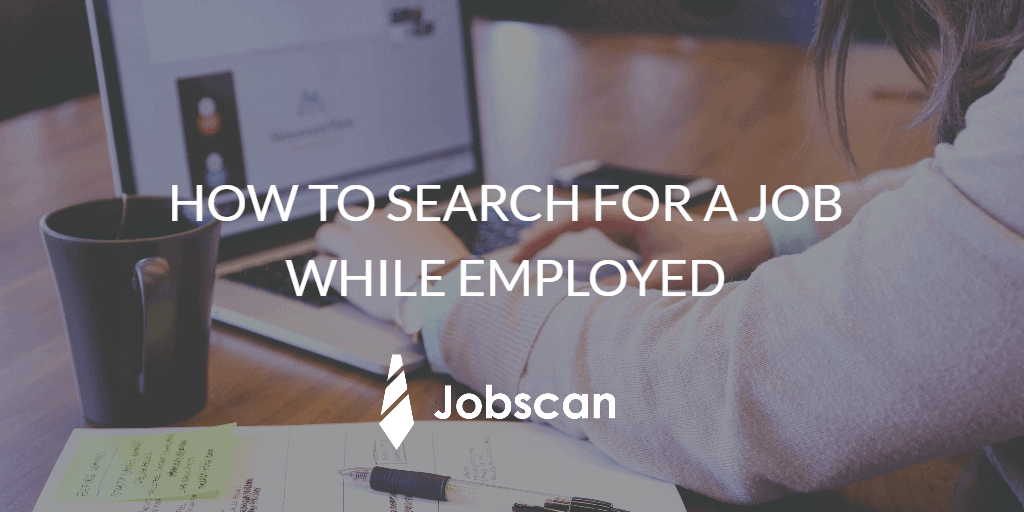We’ve all been there. You find yourself staring out the window at work for longer and longer each day. Sometimes you spend your entire eight-hour work day staring out the window. Why? Because you’re tired of your job. It’s time for a new window to stare out. Looking for job while employed is often a dicey situation. A job search requires plenty of time and effort, but it can also put your current work at risk.
So how do you jump ship without sinking the one you’re on? By using a little tact. And a submarine. Let’s take a look at few techniques for job hunting without losing your job:
Stay Professional, Stay Classy
It’s common for people to get tired of their job and yearn for something else. I like to yearn about six or seven times a day, usually after lunch. What’s important is to remain professional during this period, from the beginning of your job search to your last day at work.
While it may be tempting to respond to everything your boss says with “Whatever, I don’t even like this job,” it’s best to avoid displaying a lack of enthusiasm. Try taking the opposite approach. Do your best work during this period, so that if you ever do leave, the company will see that you remained loyal even as you were planning your departure, which might lead to a good reference in the future. It will feel good to be missed.
Keep Your Job Search Out of the Office
Even though it feels like spying (which is cool), searching for a job at the office is a big no-no. Don’t use your computer at work to apply for jobs, as companies often track internet usage, and it won’t reflect well when they see you frequently visiting HateMyJob.com. Save your search for outside the office, like home or a cafe, where there’s no need to check if anyone is looking at your screen. You’re not being paid to job search anyway.
And this may seem like an obvious point, but it must be stated: if you have an interview scheduled after work, and your office has a casual dress code, do not show up wearing a suit. Everyone will know what you’re up to, no matter how often you claim the suit is for a funeral or meeting the in-laws. Change after work.
Scheduling the Interview When There’s No Time
Scheduling a job interview while working full-time can be stressful, even if it’s a phone interview, since it feels as though the only way to make time is to quit your current job. Otherwise you’ll find yourself sitting in a bathroom stall, hoping no one hears you whisper, “This position sounds like a great opportunity.”
You can’t do the interview under your desk, in the lunchroom, or the elevator. Someone is bound to catch you and pull the fire alarm. “This guy’s trying to find a new job!”
Try to schedule the interview for off-hours. If the company needs to see you during the day, take a personal day, an extra-long lunch, or schedule an “appointment.” You will no doubt feel a little guilty. Still, if the job is something you really want, it’s best to go all in, as long as you make sure not to jeopardize your current work. Don’t feel too bad about it: there’s nothing actually wrong with trying to get a better job.
Please Don’t Contact My Present Employer
You know that little box in a job application that says, “Please Don’t Contact My Present Employer”? You should totally click that box, because your current boss is probably not a good person to use as a reference. Use references from previous employers, a best friend or perhaps someone that you really trust at the job.
So how do you show a prospective employer that you were successful at your current job? By featuring the work itself. Send them your portfolio, highlight successful company metrics, and mention any promotions or recommendations that you’ve received. It’s not like clicking that box will cause the hiring manager to say, “Well, if you’re lying to your current boss about looking for work, how do I know you won’t lie to us?”
The Jig is Up
Let’s say you’ve followed none of this advice and your boss finds out about your job search. Is the only option to yell “Look behind you!” and run away? Perhaps. But it behooves you to simply be honest. Mention that there was nowhere left for personal growth in the company, and that you haven’t let the job search impact your current work in any way. Use it as an opportunity to negotiate, or offer to help hire your replacement. Staying on good terms is always useful.
Consider adding, “You know, I found this job while at my previous gig,” and your boss might respond, “I remember our interview like it was yesterday!” Then you can hug and cry and talk about all the good times.
“But I’m still leaving.”















